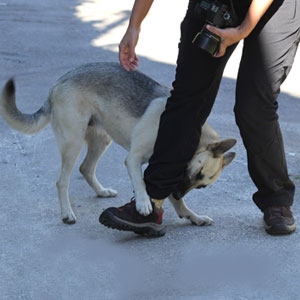
Dog bite cases hold personal significance for me and my team. Many of us are dog owners and dog lovers, while others have experienced attacks firsthand. This gives us a unique perspective we understand both the responsibilities of dog ownership and the vulnerabilities of those who are attacked.
If you’ve been injured in a dog bite incident, it’s essential to understand the types of damages you can pursue and how they’re calculated. Whether the injury results from a dog attack, an automobile collision, or another type of personal injury, victims have the right to prove their damages and seek compensation. Here’s what you need to know.
When pursuing a dog bite claim, the different kinds of compensation (called “damages” in the legal world) are typically divided into two categories: economic damages and non-economic damages.
Economic damages address the financial losses associated with your injury. These are calculated based on tangible costs, such as:
Economic damages are typically straightforward and based on your actual losses, supported by evidence like medical bills, pay stubs, and expert testimony about future expenses or time off.
Non-economic damages focus on the impact your injury has had on your quality of life. These damages are less concrete but equally important. They include:
Non-economic damages rely heavily on testimony both yours and that of others who can attest to the changes they’ve observed in your life.
The methods for calculating damages differ between the two categories:
Your testimony is critical in showing how the injury has changed your life. In a dog bite case, family members, neighbors, coworkers, or friends can explain how they’ve seen you struggle or how the injury has affected your relationships and daily activities. This evidence helps the jury understand the full impact of the incident on your life.
Navigating the dog bite injury claim process can feel overwhelming, especially when mounting medical bills and other responsibilities are competing for your attention. While it’s natural to want a clear timeline, the reality is that each case is unique, and the duration of the process can vary based on several factors.
The length of the claim process depends on elements such as:
A significant factor in determining the length of a claim is your medical treatment. The process often cannot be resolved until your treatment is complete, as the extent of your injuries and potential long-term effects must be thoroughly evaluated.
While you undergo treatment, we work diligently behind the scenes:
Before filing a formal complaint, efforts are focused on resolving the claim without litigation. This includes:
If a settlement isn’t reached through pre-litigation efforts, the case may proceed to court. At this stage, the court establishes the timeline, which can vary based on its schedule and other factors. Preparation for trial often involves:
At the end of the day, each dog bite claim is distinct, and the process requires careful attention to the unique details of your situation. While the process can be lengthy, having an experienced legal team by your side ensures that your rights are protected and that you receive the compensation you deserve.
If you’ve never been in a deposition or on a witness stand before, the idea of having to testify can be unsettling and trigger anxiety. Having a clear understanding of the process ahead of time can help you feel more at ease.
A deposition is a process where you provide testimony under oath, just as if you were testifying before a judge or jury. Before your deposition, it’s important to have the process explained to you to help manage any nerves, emotions, or uncertainty.
When our office represents a client, we take steps to ensure they understand what will happen. Depositions can sometimes become contentious if attorneys disagree on whether a question is reasonable. Being prepared for such situations is key, and it’s important to know that your attorney is there to represent your best interests.
You’ll also need to recall specific details about your case, such as:
These details are crucial because they establish the burden of proof how the incident happened, why it was the other party’s fault, and the nature of the injuries you suffered.
To help you prepare, your attorney will review likely questions with you ahead of time to ensure you’re comfortable answering them. The goal is for you to feel confident and ready for whatever comes up during the deposition.
The most important advice we give our clients is to:
Whether or not you will testify in court depends on your case. Many cases settle before reaching trial, but if you do need to testify, your deposition will serve as valuable preparation. With proper guidance and support, you can approach the deposition process with confidence.
When handling cases, the factor that sets our firm apart is our balanced and compassionate approach. We recognize that not every incident is the fault of the dog or its owner, but we also advocate for accountability when negligence plays a role. By understanding both sides, we approach each case with fairness and a deep commitment to our clients’ well-being. Our focus is always on achieving justice for our clients while emphasizing the importance of responsible pet ownership to prevent future incidents.
Still Have Questions? Ready To Get Started?
For more information on Dog Bite Injury Claim, an initial consultation is your next best step. Get the information and legal answers you are seeking by calling (760) 852-7134 today.

